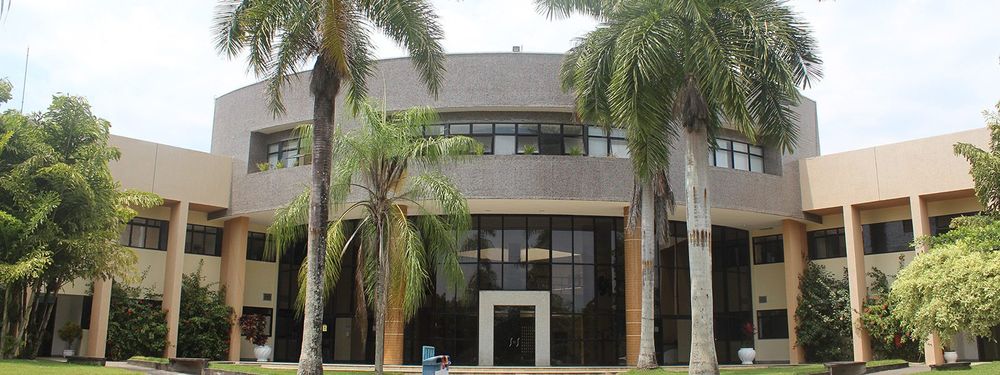Located in the Portal do Sertão, the State University of Feira de Santana (Universidade Estadual de Feira de Santana) - UEFS was born as a result of a government strategy aimed at internalizing higher education, which until then had been confined to the capital, Salvador.
Since the 1960s, government policies at both federal and state level have been guided by the Human Capital Theory, which sees education as a personal and social investment that generates economic development. Under the influence of this theory, in 1968, the Bahian government created an education policy (integral education plan), aimed at extending and expanding the education system at all levels, with the aim of training staff for the industrialization process. Thus, the process of internalization began with the installation of Teacher Training Colleges in the main cities in the interior, the headquarters of the state's administrative regions, which began to act as geo educational districts.
It was within the framework of this policy that Feira de Santana - a municipality characterized in the Comprehensive Education Plan, by its economic and social indicators, as the most important polarizing center of development in the interior of the state - was awarded a College of Education in 1968 and, in 1970, the creation of the University of Feira de Santana Foundation (Fundação Universidade de Feira de Santana) - FUFS - through State Law #. 2,784, on January 24th, 1970.
Created under Federal Law# 5,540, on November 28th, 1968 and organized according to a project drawn up by the Centre for Interdisciplinary Studies for the Public Sector - ISP - associated to the Federal University of Bahia, the FUFS (as it was initially called) has its structural plan based on the two basic principles of the University Reform - the non-duplication of means for identical or equivalent ends and the inseparability of Teaching, Research and Extension (Service) - choosing, among the structural integration alternatives offered by the Law, the one that operates on the basis of articulation between departments and the Higher Administration, eliminating the possibility of administrative coordination at an intermediate level (colleges, institutes or centers).
Once authorized, the University was solemnly installed on May 31st, 1976, with the following undergraduate courses: Major degree in English/French (for Elementary / Middle School and High School); Full major degree in Science, with a qualification in Mathematics and Biology and in Science (for Elementary / Middle School); Full major degree in Social Studies, with a qualification in Moral and Civic Education and Social Studies (for Elementary / Middle School); and, in addition, undergraduate courses in Nursing, Operations Engineering - Civil Construction, Administration, Economics and Accounting.
Authorized by Federal Decree # 77,496 in 1976, recognized by Ministerial Order # 874/86 on December 19th, 1986 and re-accredited by State Decree # 9,271 on December 14th, 2004, the UEFS has been expanding rapidly, concentrating its actions in the center-north of Bahia, a territory that is part of the semi-arid region, and is present in around 150 municipalities in Bahia, in fulfillment of its social objective, which is to prepare citizens who will exercise both professional and intellectual leadership in the field of the activities they undertake, as well as having social responsibility in the sense of being able to play their role in defining the destinies of Bahian and Brazilian society. Fulfilling this social function makes it recognized as one of the most expressive Higher Education Institutions in the State of Bahia and in the country.
In December, 1980, as part of the state's administrative reform process, the University of Feira de Santana Foundation (FUFS) was abolished by Delegated Law # 11 on December 29th, 1980, and succeeded by the State University of Feira de Santana (Universidade Estadual de Feira de Santana) - UEFS, a Special Autarchy created by Delegated Law # 12 on December 30th, 1980. As a university, UEFS is committed to ensuring its realization as a free and autonomous space for the creation of knowledge, dialectical coexistence and constant critical evaluation, becoming a university integrated within itself and its region: it grows institutionally, expands its area of influence and action, perfects the academic process and consolidates the campus. Integration and participation as a whole take on a new dimension and the university community mobilizes around its project.
Consolidated, in terms of quality and excellence, is how we can define our university, since it has been on a par with the most important universities in the country thanks to the serious and high-quality work carried out by its teachers, staff and students, which has resulted in academic and scientific credibility. The evaluations carried out by official state and federal bodies, in terms of the installed capacity for the courses on offer and the installation of others, which have, without exception, obtained approvals with always positive benchmarks, including regional and national prominence in teaching performance, these approvals are proof that this university maintains the principle it has always defended: to ensure itself as a public, free and quality university.
